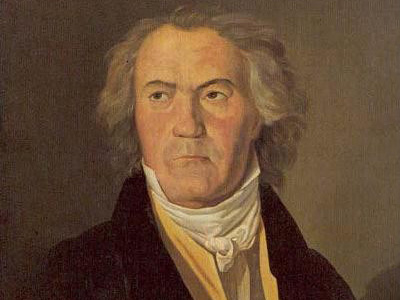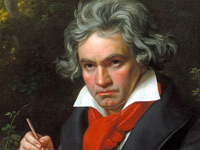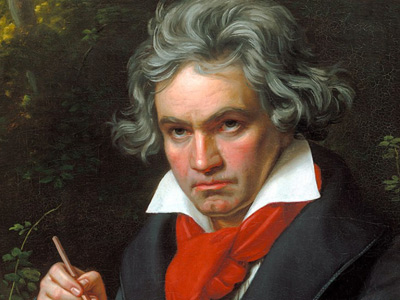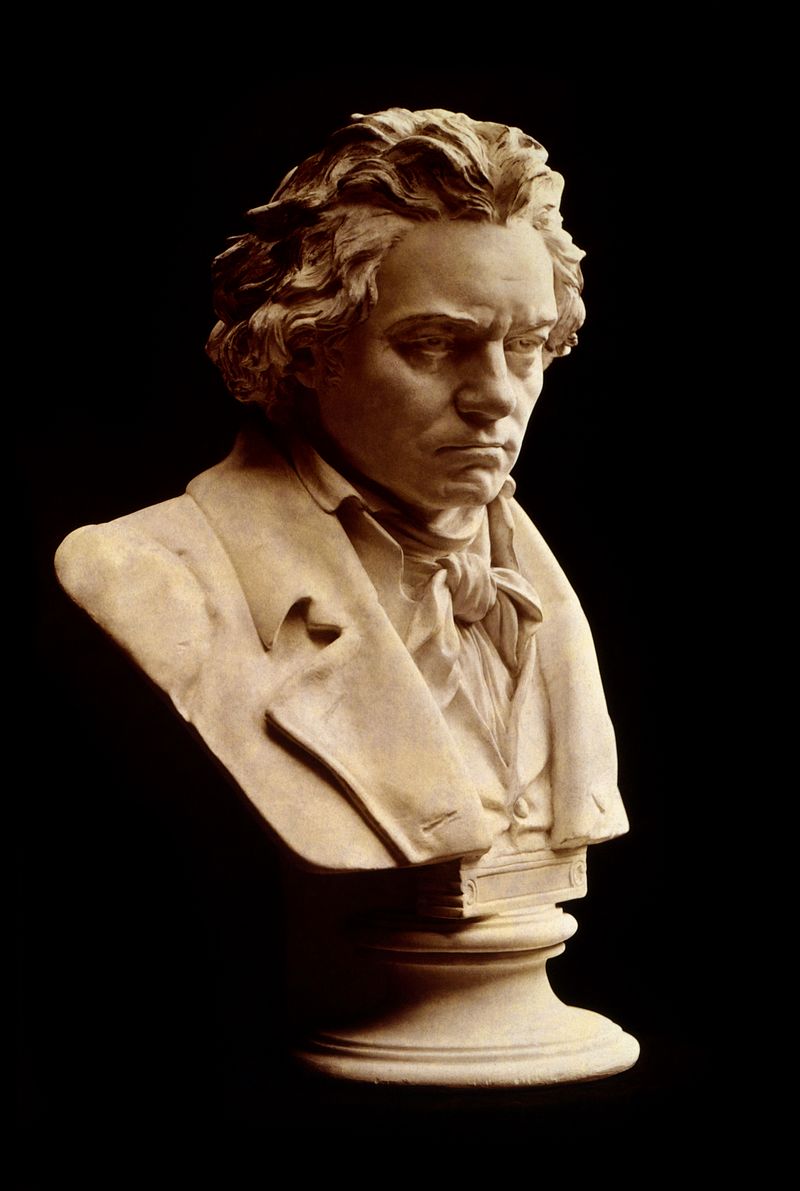Ludwig van Beethoven (1770-1827)

Illness and death
Beethoven was bedridden for most of his remaining months, and many friends came to visit. He died on 26 March 1827 at the age of 56 during a thunderstorm. His friend Anselm Hüttenbrenner, who was present at the time, said that there was a peal of thunder at the moment of death. An autopsy revealed significant liver damage, which may have been due to heavy alcohol consumption. It also revealed considerable dilation of the auditory and other related nerves.
Beethoven's funeral procession on 29 March 1827 was attended by an estimated 20,000 Viennese citizens. Franz Schubert, who died the following year and was buried next to Beethoven, was one of the torchbearers. Beethoven was buried in a dedicated grave in the Währing cemetery, north-west of Vienna, after a requiem mass at the church of the Holy Trinity (Dreifaltigkeitskirche). His remains were exhumed for study in 1862, and moved in 1888 to Vienna's Zentralfriedhof. In 2012, his crypt was checked to see if his teeth had been stolen during a series of grave robberies of other famous Viennese composers.
There is dispute about the cause of Beethoven's death: alcoholic cirrhosis, syphilis, infectious hepatitis, lead poisoning, sarcoidosis and Whipple's disease have all been proposed. Friends and visitors before and after his death clipped locks of his hair, some of which have been preserved and subjected to additional analysis, as have skull fragments removed during the 1862 exhumation. Some of these analyses have led to controversial assertions that Beethoven was accidentally poisoned to death by excessive doses of lead-based treatments administered under instruction from his doctor.
HISTORY

RESOURCES
This article uses material from the Wikipedia article "Ludwig van Beethoven (1770-1827)", which is released under the Creative Commons Attribution-Share-Alike License 3.0.
© Stories Preschool. All Rights Reserved.










